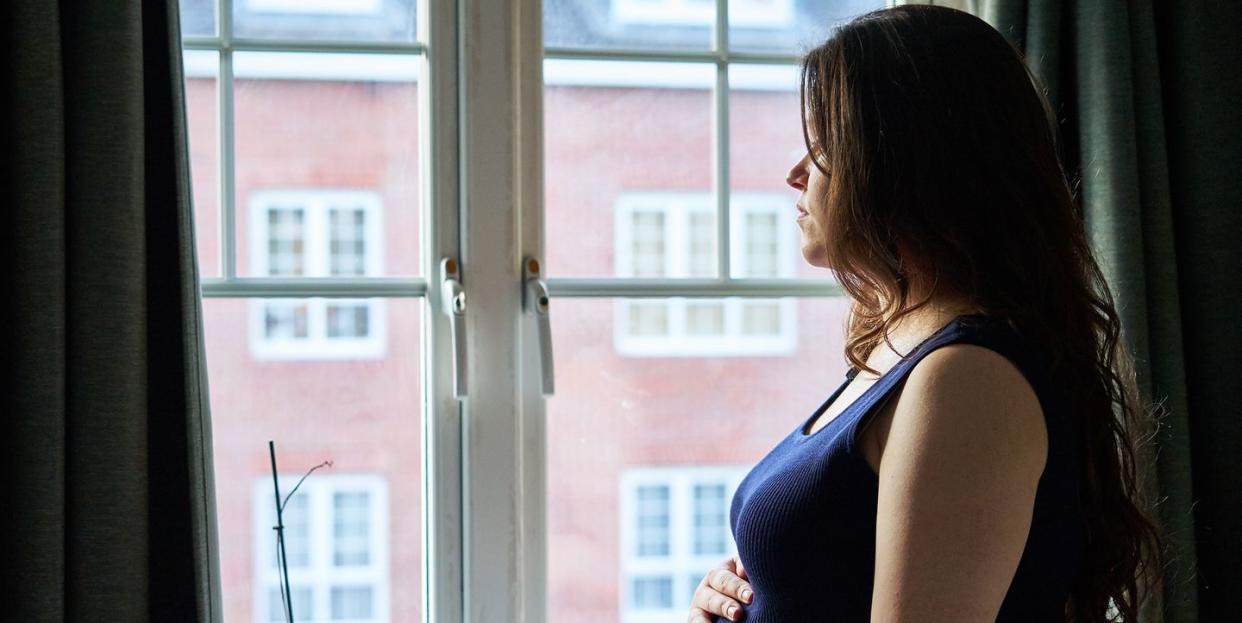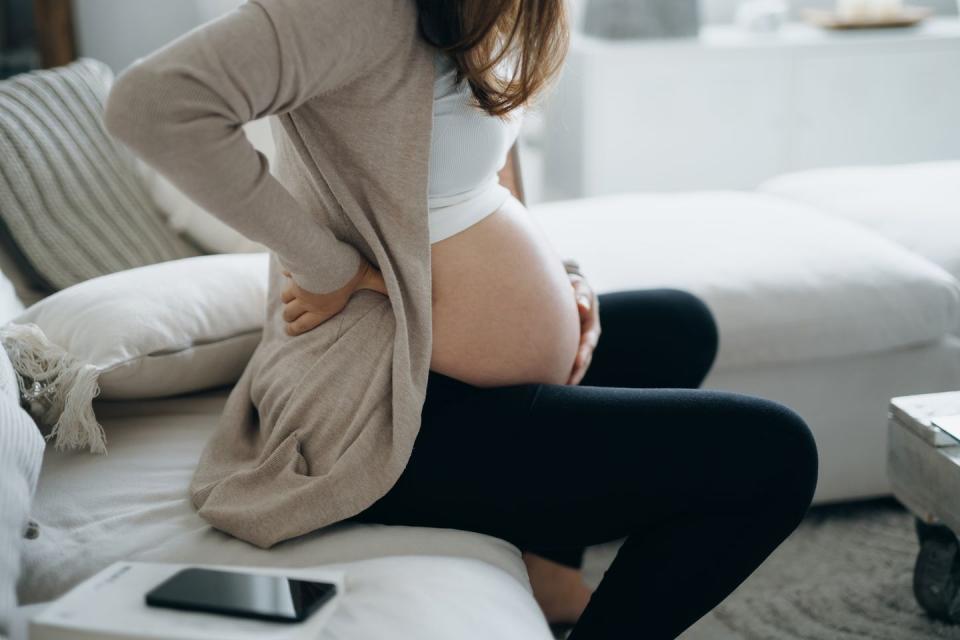Number of new and expectant mums accessing mental health support rises by a third in a year

The number of new and expectant mums receiving support for mental health issues has risen by a third over the last year – and has nearly doubled in the past three years, according to new NHS England data.
The numbers, released today, show that more than 57,000 women were treated by specialists between March 2023 and February 2024, with assistance given for conditions ranging from 'moderate' to 'complex', including on developing a relationship between parent and baby.
While numbers of women getting help are up, it is still short of the NHS target, which was for 66,000 women in the perinatal period to have been contacted by mental health services by April 2024, according to the Independent.
The news comes asthe Royal College of Psychiatrists revealed that up to 1,200 women experience postpartum psychosis each year in England and Wales.
According to a press release issued by NHS England, every part of England now has a specialist mental health team, and all new mums are now offered a mental and physical GP check-up within six weeks of giving birth. According to sources who have spoken to the Independent, however, the NHS has failed to hit targets to roll out maternal mental health hubs to all areas by April this year, with some hubs closing due to funding cuts.
The paper has also found that the average waiting time for access to community mental health services for new and expectant mums was eight weeks for a first appointment in the year 2022-23; that some trusts have waiting times of between 15 and 30 weeks and that almost a fifth of referrals were rejected by community mental health services, rising to up to 80% in some areas.
In an interview with the publication, Donna Ockenden, a midwife and health care leader, who led a review of maternity care at the Shrewsbury and Telford Hospital NHS Trust, called on the government to urgently improve provision.
'The safety net in terms of services, one by one, has become more threadbare. I hear this from new mothers, midwives on the ground, and health-visiting colleagues,' she said. 'We’ve cut services, and therefore reduced the ability of midwives and the perinatal team to give the care that they want to give.' While investment of £180m a year has been supplied to maternity services since 2020, 'that is nowhere near enough after more than a decade of underfunding,' she said.
NHS England mental health director Claire Murdoch said that 90% of women access support during pregnant and that the NHS has opened 39 maternal mental health hubs thus far. 'These teams include highly trained, specialist staff who offer support to women with moderate to severe or complex mental health needs, and now offer the option of treatment at home or at local family centres in the community,' she said.
'In a mental health emergency, a pregnant woman or new mum can also go to their local A&E department, where specialised mental health liaison services will be able to help.'
Of the latest NHS England data, Health Minister Maria Caulfield said: 'Pregnancy and motherhood can be a challenging time, so it’s brilliant to see new and expectant mothers accessing tailored mental health services. We are committed to ensuring these services are available to every new mother who needs them, no matter where they live in England.'
A spokesperson for the Royal College of Midwives said: 'Perinatal mental illness impacts many new and expectant mothers, and it is encouraging that more women than ever are accessing perinatal mental health services. Despite this progress there is still more work to do. As outlined in our perinatal mental health roadmap, it is vital we remain focused on recruiting and retaining our midwifery workforce, so services can support ever-increasing demand.'
What are perinatal mental health problems?
According to the NHS, perinatal mental health (PMH) problems are those that occur during pregnancy or in the first year following the birth of a child. Around 600,000 women give birth in England each year and PMH affects up to 27% of new and expectant mums. If left untreated, mental health issues can have significant and long-lasting effects on the woman, the child, and the family.
Data released in December 2023 from Mbrrace UK, which examines the causes of maternal mortality in Britain, found that suicide was the leading cause of death in women in the year after giving birth.

How accessible have perimental health services been in the past?
While PMH services have expanded post-pandemic, the NHS has been struggling to keep up with the growing demand. According to the Maternal Mental Health Alliance, services in England received 93,494 referrals in 2021 alone, and the 40,000 women who accessed PMH that year was a 16,000 shortfall of the 57,000 target.
Last year, The Guardian revealed that in 2023, 11,507 women sought care for maternal mental health and did not receive any help, according to information provided by 34 of England's 54 NHS mental health trusts. Extrapolating these numbers to other 20 trusts brings the estimated total to 18,953 mothers who were denied care, said Dr Rosena Allin-Khan, Labour's former shadow minster for mental health.
Those who did receive mental health help had to wait up to 19 months for their treatment in some parts of the country due to service shortage.
'It is an absolute scandal that new mothers are facing long waits for mental health services and all too often end up being turned away. No mother should be left behind to suffer in silence,' Allin-Khan said.
Referral rates were highest for younger women, with those aged 20 to 24 years were twice as likely to be referred for treatment than those over 30, the Maternal Mental Health Alliance found.
Related stories:
Experts explain why taking folic acid during pregnancy is so important
26 of the best pregnancy pillows to ease insomnia and back aches
You Might Also Like


